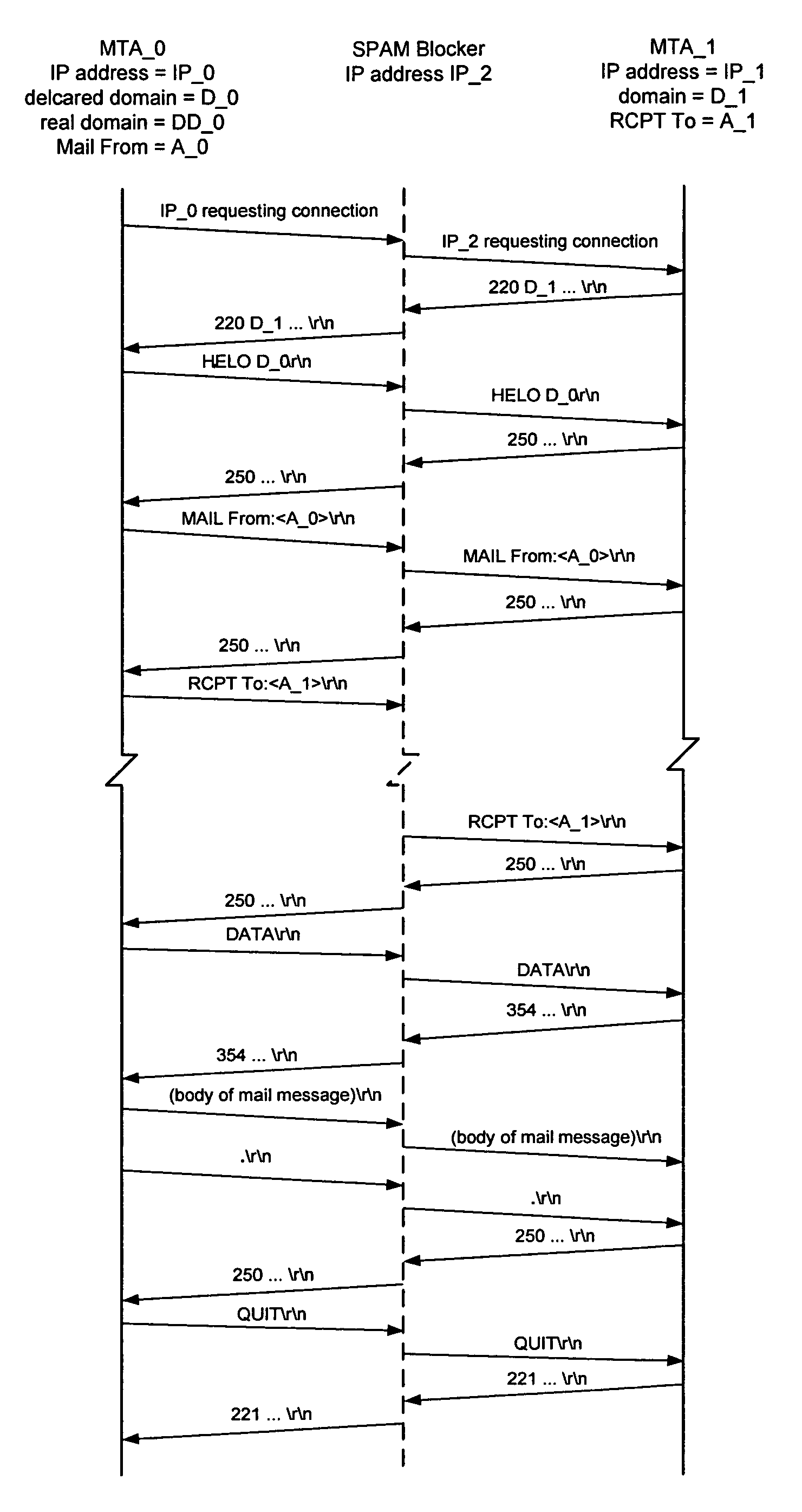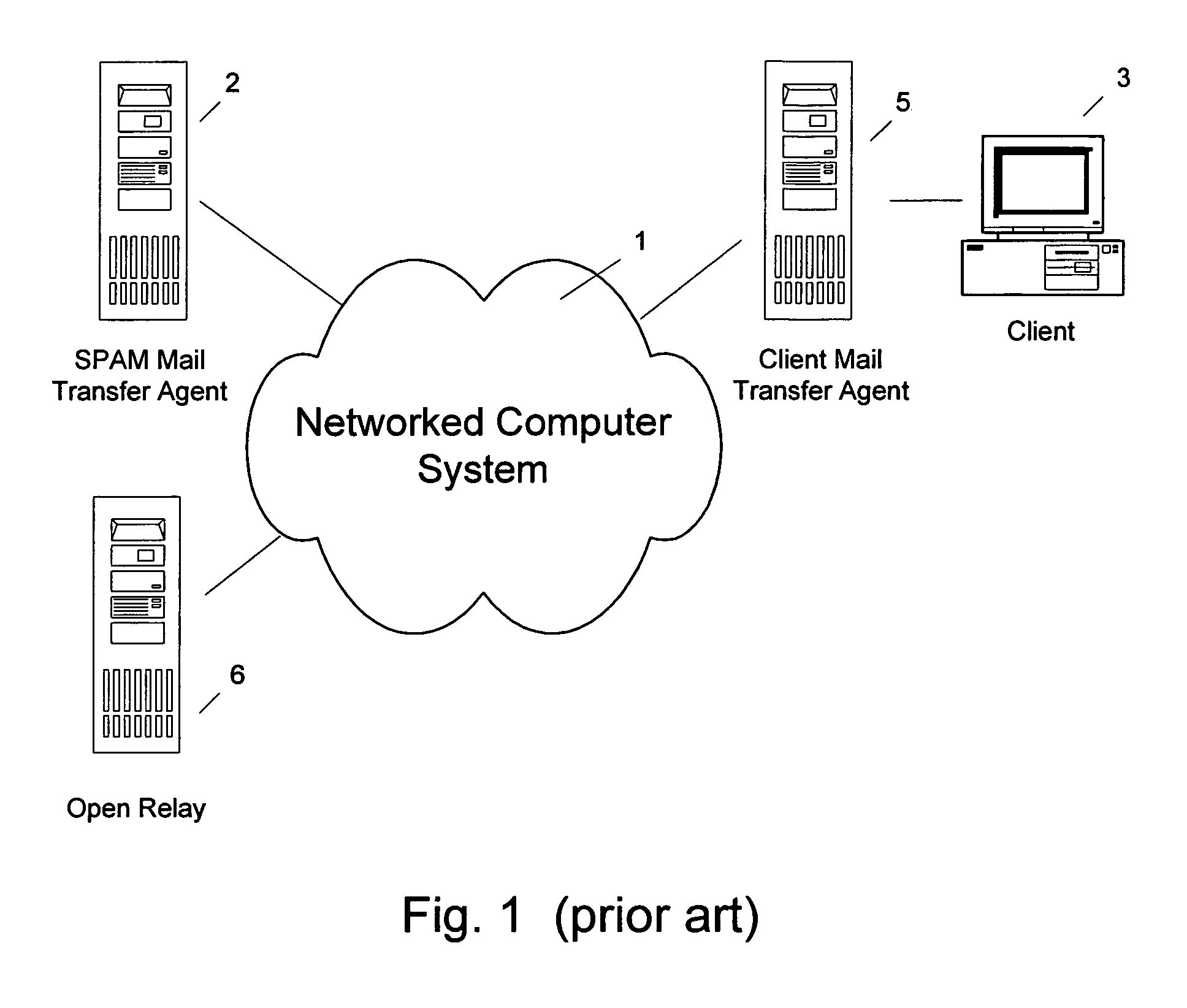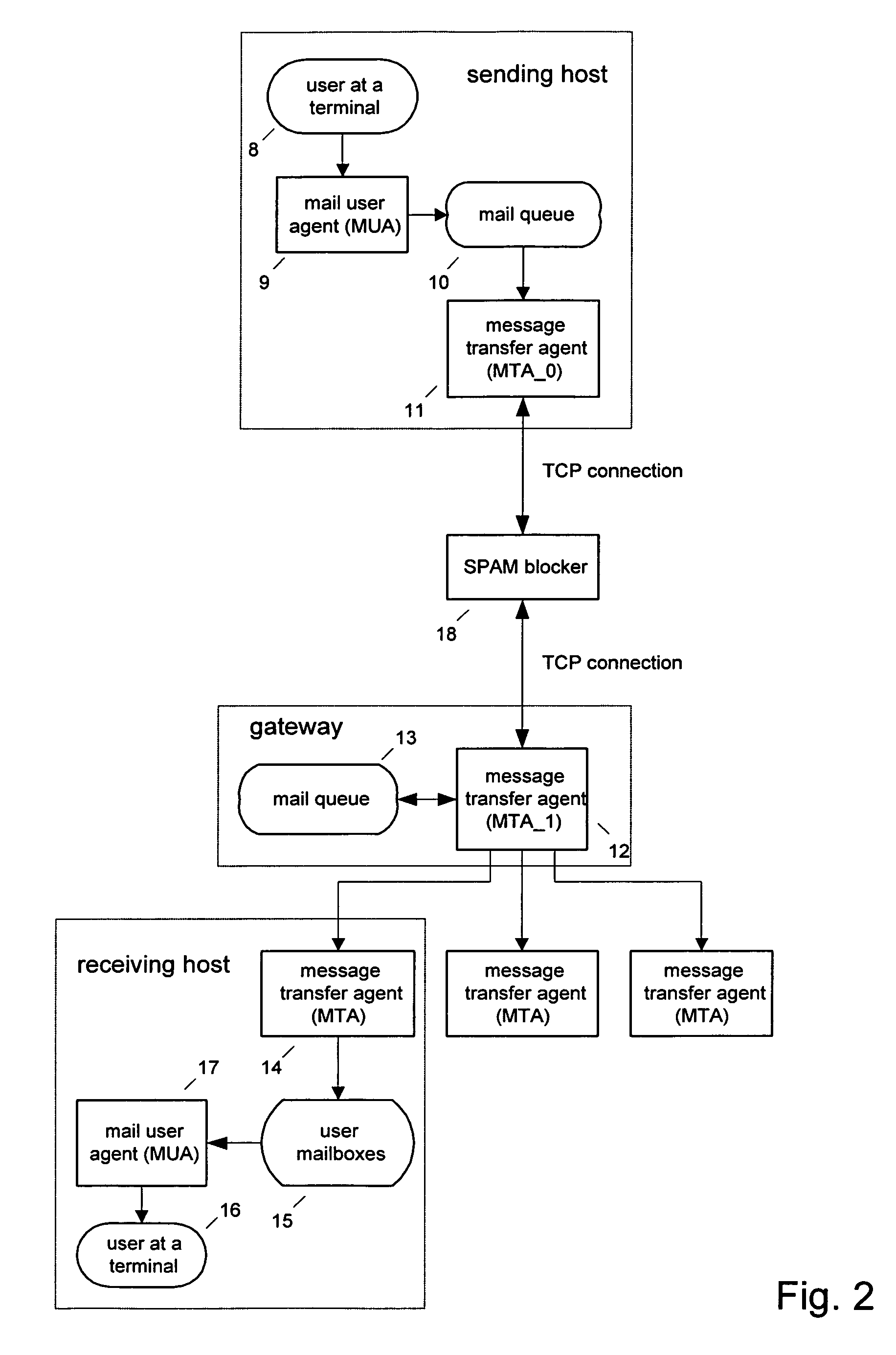Unsolicited message rejecting communications processor
a technology of unsolicited messages and communications processors, applied in the field of unsolicited message rejecting communications processors, can solve the problems of unsolicited e-mail messages, commonly referred to as spam, cluttering this communication channel, and loss of productivity,
- Summary
- Abstract
- Description
- Claims
- Application Information
AI Technical Summary
Benefits of technology
Problems solved by technology
Method used
Image
Examples
Embodiment Construction
[0069]In overview, a user, 8, in FIG. 2, sits at a terminal and types an e-mail message into a mail user agent (MUA), 9, such as Microsoft Outlook Express or Eudora. This mail message is then sent to a mail queue, 10, associated with a message transfer agent (MTA), 11, such as Unix Sendmail. MTA, 11, contacts MTA, 12, associated with the to-address of the mail message and negotiates the transfer of the queued mail message. If the negotiations are completed in a satisfactory manner, the message is transferred and stored in a queue, 13, associated with the gateway MTA, 12. MTA 12 then either stores the mail message in the user's mailbox, 15, or relays the mail message to another MTA, 14, associated with the user. The receiving user, 16, then uses their mail user agent (MUA), 17, to fetch the mail message from their mailbox 15.
[0070]The present invention, a spam blocker, 18, in FIG. 2, is inserted between MTA 11 and MTA 12. The spam blocker monitors the conversation between MTA 11 and ...
PUM
 Login to View More
Login to View More Abstract
Description
Claims
Application Information
 Login to View More
Login to View More - R&D
- Intellectual Property
- Life Sciences
- Materials
- Tech Scout
- Unparalleled Data Quality
- Higher Quality Content
- 60% Fewer Hallucinations
Browse by: Latest US Patents, China's latest patents, Technical Efficacy Thesaurus, Application Domain, Technology Topic, Popular Technical Reports.
© 2025 PatSnap. All rights reserved.Legal|Privacy policy|Modern Slavery Act Transparency Statement|Sitemap|About US| Contact US: help@patsnap.com



